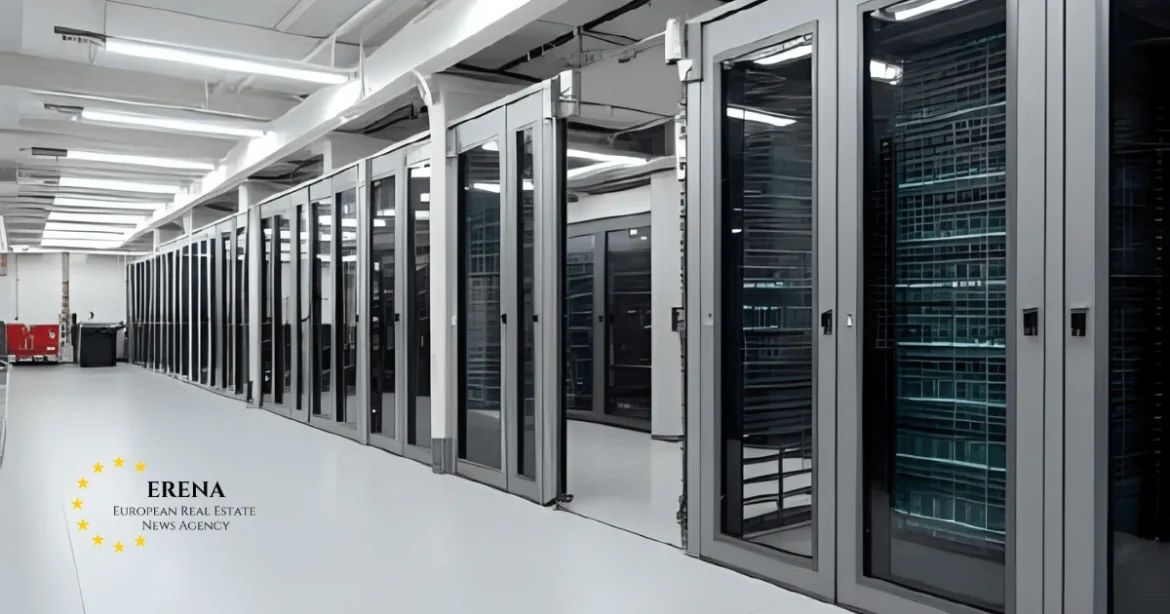Google has confirmed a landmark €5.9 billion commitment (around £5 billion / $6.8 billion) to the United Kingdom, launching a two-year investment programme centred on the construction of a new hyperscale data centre in Waltham Cross, Hertfordshire. The initiative combines capital expenditure, research and development, and engineering, while also strengthening Google DeepMind’s UK presence. According to the company, the project is expected to support around 8,250 jobs annually across construction, supply chains and associated industries.
A Strategic Hub for AI Services
The Waltham Cross site is located just outside London’s M25 orbital motorway, offering proximity to the capital’s financial sector, government agencies and digital businesses. Google states that the facility will provide greater local hosting capacity and reduced latency for AI-intensive services, supporting platforms such as Google Cloud, Search, Maps and Workspace.
Industry observers note that DeepMind, Google’s London-based AI research arm, may particularly benefit from the facility’s capacity. Proximity to large-scale compute power could accelerate fields like drug discovery and protein modelling, building on past successes such as AlphaFold. While Google has not explicitly tied the centre to DeepMind’s work, analysts see the geographic link as strategically significant.
Energy Efficiency and Sustainability
Google has made sustainability a cornerstone of the UK expansion. The Waltham Cross facility will use advanced air-cooling systems to minimise water consumption and is being built to enable off-site heat recovery, meaning excess server heat could eventually be redirected to warm homes, schools and businesses in the Broxbourne area.
To secure clean energy supply, Google has signed a major agreement with Shell Energy Europe to deliver 24/7 carbon-free energy matching. This will be supported by battery energy storage systems (BESS) that balance demand and store renewable electricity during low generation periods. Google has set a target of achieving around 95% carbon-free operations in the UK by 2026 — a goal that, if met, would set a benchmark for the global data centre sector.
The Numbers Behind the Project
- Total investment: €5.9bn (£5bn / $6.8bn) over two years
- Employment impact: 8,250 jobs annually supported through construction and supply
- Site size: Industry sources report around 33 acres, though Google has not confirmed this
- Design model: air-cooling, readiness for heat recovery, BESS, 24/7 clean-energy matching
Although Google has not disclosed exact capacity in megawatts or floor space, sector analysts classify Waltham Cross as a hyperscale facility, reflecting both the scale of the investment and its intended role.
Competition and Market Context
The UK is among Europe’s most competitive markets for cloud and AI infrastructure. Amazon Web Services (AWS) and Microsoft Azure already operate large campuses in the London region, notably around Slough and the Thames Valley. With this new project, Google strengthens its ability to compete for enterprise AI clients.
Market data indicates that AWS and Microsoft together control more than 60 percent of the UK cloud market. Google Cloud, while smaller, has been expanding aggressively, and this investment underscores its determination to capture a larger share by pairing infrastructure growth with AI-driven services. Analysts describe the move as part of a broader European AI infrastructure race, with hyperscalers also funnelling billions into facilities in Germany, Spain, Italy and France.
Official Reaction
The announcement was welcomed by Rachel Reeves, UK Chancellor of the Exchequer, who described the project as “a powerful vote of confidence in the UK economy.” She linked Google’s decision to government plans for accelerating growth through planning reform and modernised infrastructure.
Demis Hassabis, CEO of DeepMind, highlighted the UK’s scientific tradition, framing the facility as a platform for “the next wave of innovation and discovery.” His remarks underline the strategic importance of situating research and compute capacity within the same national ecosystem.
Local Impact and Community Role
Beyond the technical infrastructure, Google has pledged to establish a Community Fund in Broxbourne and Hertfordshire, supporting schools, training initiatives and social programmes. The company emphasises this as part of its long-term role as a “responsible neighbour.”
More than 250 companies, many of them local, were engaged during the construction phase, highlighting the economic spillover for the region. Local suppliers — from electrical contractors to catering firms — have already secured multi-year service contracts.
At the same time, environmental groups remain cautious. They point out that AI data centres are highly energy-intensive and stress that promises of carbon-free energy and heat recovery must be delivered in practice. Regulators are expected to closely monitor Google’s performance on sustainability goals.
A European Backdrop
The UK’s ability to attract this scale of investment comes at a moment when other European countries are imposing tighter restrictions on data centre expansion. Ireland and the Netherlands, once leading hubs, have slowed approvals due to grid strain. By contrast, the UK — seeking to position itself as a global AI hub in the post-Brexit era — has adopted a more open stance, leveraging its deep AI talent pool to attract international tech giants.
Similar commitments are visible across the continent: Microsoft has pledged multi-billion-euro AI investments in Germany and Spain, while AWS is expanding in Italy and France. Analysts argue that Europe has entered a new phase of strategic AI infrastructure competition, where data centres function as both economic assets and symbols of national technological prestige.
Bottom Line
For the UK, Google’s €5.9 billion Waltham Cross investment represents far more than a data centre: it is a statement of confidence and a strategic foothold in the global AI economy. For Google, it is both an effort to close the gap with AWS and Microsoft and a chance to integrate infrastructure with the research power of DeepMind.
The true test will be in execution — whether latency is cut, compute resources expand as promised, and sustainability goals are met. Yet the direction is clear: Britain is positioning itself as a central node in the rapidly accelerating race to build the infrastructure of the AI era.


